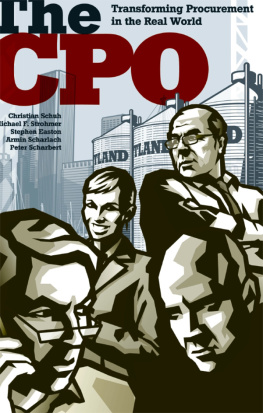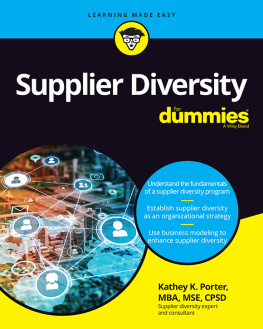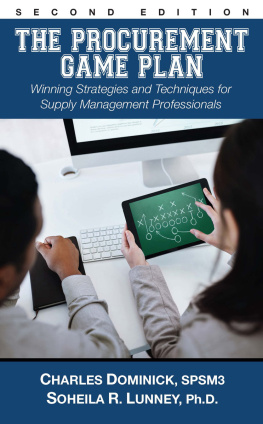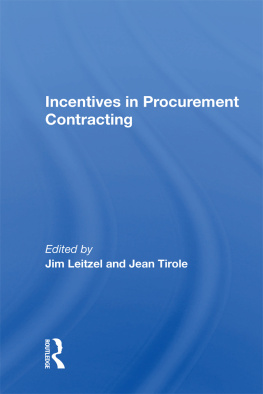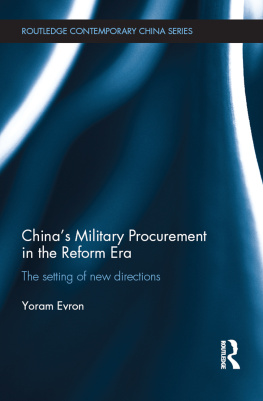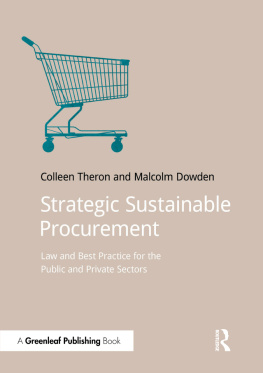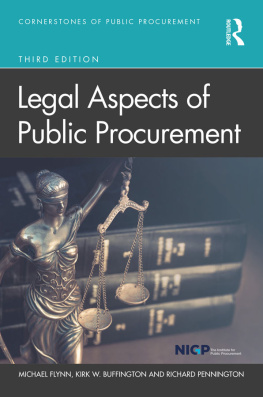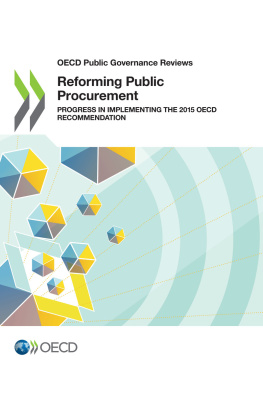PROFIT
FROM THE
SOURCE

HBR Press Quantity Sales Discounts
Harvard Business Review Press titles are available at significant quantity discounts when purchased in bulk for client gifts, sales promotions, and premiums. Special editions, including books with corporate logos, customized covers, and letters from the company or CEO printed in the front matter, as well as excerpts of existing books, can also be created in large quantities for special needs.
For details and discount information for both print and ebook formats, contact booksales .
Copyright 2022 The Boston Consulting Group, Inc.
All rights reserved
Printed in the United States of America
10 9 8 7 6 5 4 3 2 1
No part of this publication may be reproduced, stored in or introduced into a retrieval system, or transmitted, in any form, or by any means (electronic, mechanical, photocopying, recording, or otherwise), without the prior permission of the publisher. Requests for permission should be directed to , or mailed to Permissions, Harvard Business School Publishing, 60 Harvard Way, Boston, Massachusetts 02163.
The web addresses referenced in this book were live and correct at the time of the books publication but may be subject to change.
Library of Congress Cataloging-in-Publication Data
Names: Schuh, Christian, author. | Schnellbacher, Wolfgang, author. | Triplat, Alenka, author. | Weise, Daniel (Writer on industrial procurement), author.
Title: Profit from the source : transforming your business by putting suppliers at the core / Christian Schuh, Wolfgang Schnellbacher, Alenka Triplat, Daniel Weise.
Description: Boston, Massachusetts : Harvard Business Review Press, [2022] | Includes index. |
Identifiers: LCCN 2022003884 (print) | LCCN 2022003885 (ebook) | ISBN 9781647821395 (hardcover) | ISBN 9781647821401 (epub)
Subjects: LCSH: Purchasing. | Business logistics. | Industrial procurement. | Shopping. | Success in business.
Classification: LCC HF5437 .S354 2022 (print) | LCC HF5437 (ebook) | DDC 658.7/2dc23/eng/20220223
LC record available at https://lccn.loc.gov/2022003884
LC ebook record available at https://lccn.loc.gov/2022003885
ISBN: 978-1-64782-139-5
eISBN: 978-1-64782-140-1
The paper used in this publication meets the requirements of the American National Standard for Permanence of Paper for Publications and Documents in Libraries and Archives Z39.48-1992.
Dedication
Companies play a vital role in society. In the past, their role, and their success, was framed within a narrowly financial context, and the wealth they created was shared among a privileged few. They viewed their suppliers as a source of savings and their procurement function as the instrument for extracting those savings. In the future, they must contribute to the broader well-being of societythe common wealth. They must benefit the many, not just the few.
As we show in Profit from the Source, some CEOs have already begun to encourage their procurement teams to engage with suppliers in order to profit in the broadest sense of the word: yes, to save costs, but also to produce goods and services for the betterment of society, ones that are more innovative, better quality, faster to market, less risky, and above all, more sustainable. In all but the last of these, the metric of corporate success is to be better than the competition. But if they are to be truly sustainable, companies cannot measure themselves by how well they perform against their rivals or how well they meet minimum environmental, social, and governance regulations. Sustainability is an absolute: either a company is sustainable, or its not.
We know the task of becoming truly sustainable isnt an easy one. Indeed, it is the most difficult, most important, and most urgent task facing business leaders today. We would therefore like to dedicate our book to the individuals and companies who can show all of us the way to a better, more sustainable future.
CONTENTS
INTRODUCTION
Suppliers and Procurement
The Keys to Your Companys Future
I n August 2011, a little-known former chief procurement officer stepped into the shoes of the most celebrated chief executive on the planet. Up to that point, Tim Cook had spent his career in the backroom divisions of technology companies, far from the glare of publicity. He had been director of fulfillment at IBM and, briefly, CPO at Compaq Computers before joining Apple as senior vice president of worldwide operations and taking charge of procurement. Now he was going to replace the creative genius who had founded Apple Computer Inc. and who had, after a twelve-year hiatus when he left the company to pursue other interests, returned as a savior and made it into the epitome of cool: the irreplaceable Steve Jobs.
At the time, Cooks elevation to the top job was highly controversial. Many industry observers questioned whether he was the right man to run a company where style and looks were seemingly paramount. And the doubters appeared to be vindicated when, a couple
But there were others who hailed Cooks appointment as being truly inspired. For them, it showed that the boardand Jobs, who had handpicked Cook as his successorunderstood what made Apple tick: its supply chain. In a world of hyperconnectivity created by rampant globalization, Apple had shown itself to be a master of procurement, working with suppliers around the world to create the highest-quality and most-innovative products, all for the best price. The iPhone was (and remains) the classic example of a modern global product: designed at Apples headquarters in Cupertino, California; assembled by workers at Foxconns factory in the Chinese city of Zhengzhou, southwest of Beijing; and made of raw materials and components sourced from forty-three countries across six continents. Never before has such a complex product been manufactured in such numbers.
The next few years proved that the skeptics were wrong about Cook. He demonstrated that he knew how to deliver spectacular profit numbers that kept shareholders happy. Under his guidance, Apple has gone from strength to strength. In 2022, it reached an astonishing $3 trillion in market valuation, having become the first public company to reach $1 trillion just four years earlier.
Cook has earned plaudits for his stewardship. But curiously, procurement as a business discipline has not enjoyed the same kind of adulation. At the time of Cooks appointment, it was widely thought that procurement would at last step out from the shadows and receive the recognition it deserved as the engine room of a modern globalized business. Now that a former CPO had reached the top of the corporate ladder, surely others would follow?
The answer to that question, however, has been no. Few of the CEOs running todays major companies have served as CPOs. Apple may be among the worlds most admired companies, yet one of the biggest things that sets it aparthow it puts suppliers at the core of its businesshas been broadly disregarded by most major corporations.
In many companies, if not most, procurement is an unglamorous, unloved part of the business. When the boss offers someone a job in procurement, they know theyre on the fast track to nowhere. Its the corporate equivalent of being sent to Siberiatheres no way back. By our calculation, CEOs devote only a fraction of their mindshare (the amount of time they spend thinking about different tasks) to suppliers and, by extension, the procurement function. They rarely mention the work of the CPO in shareholder meetings or on earnings calls with analysts. Indeed, according to research by Harvard Business Schools Michael Porter and Nitin Nohria, CEOs spend just one percent of their time with suppliers. Given that spending on suppliersthe job of procurementaccounts for more than half of a typical companys total budget, this makes no sense. In effect, it means that CEOs spend next to no time either thinking about or being actively involved in how their companies spend more than half of their budgets. Thats a mismatch with potentially existential consequences for companies.


